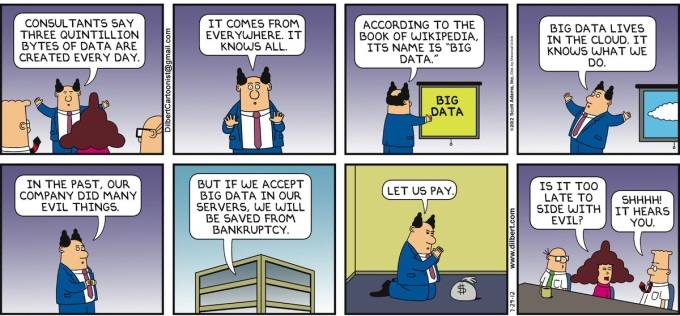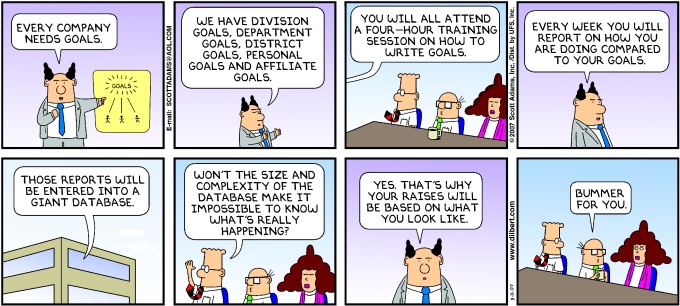
Background & Context
Almost a decade ago, a friend of mine, Atul Sapre, invited me to read Karl Weick’s brilliant work on ‘Sense Making in Organizations’, as we sat down to design elements of a course on Organization Development. One of the pivotal themes that Weick directed my attention to was of – “Bricolage” – he borrows the word from Claude Levi-Strauss’s work on cultural anthropology, and applies it to Organizations and Change.
Bricolage is a French word with no easy English translations – it means “the process of improvisation in a human endeavor”. The word is derived from the French verb bricoleur – “to tinker or to putter about”.
- Merriam Webster defines Bricolage as – “construction (as of a sculpture or a structure of ideas) achieved by using whatever comes to hand”.
- The definition of Bricolage that I endorse: “is the set of processes (dialogic or reflective) through which an individual develops novel solutions to existing problems by making use of previously unrelated knowledge or ideas they already possess.”
So … Who is the Bricoleur?
Bricolage sounds exotically ordinary, and the Bricoleur may seem too familiar. But in the realm of Big Data and associated machinery of intelligence that dwarfs human capability to analyze and conceptualize responses, maybe there is a need to look deeply into the Bricoleur’s mind and more importantly his or her heart.

Let me begin by adding to Weick’s first cut introduction of the Bricoleur from an OD practitioner’s lens:
- Someone who has intimate knowledge of ‘resources’ … This requires the Bricoleur to get his or her hands dirty in knowing the resource, as opposed to gazing at it from a dashboard or an excel sheet or worse still a psychometric report. A bricoleur cannot hide behind fears of intimacy, and apprehensions of being untouchable – he or she invests into knowing the other, the others’ shadows, and desires, intents, and strengths.
Let me give you an example – often you hear senior leaders lamenting resource crunches and lack of human capability or knowledge as they aggressively pursue growth charters for the firm. Scenario building, mapping market responses, acquisitions and mergers would garner more collective energies of the top management as opposed to intimately knowing the resources within.
Human beings run the risk of being slotted into 3×3 talent grids (potential versus performance), coaching has been outsourced to external organizations, and instrumentality overwhelms any real understanding of the human being.

Thus Grow or Buy decisions get influenced more by what is available outside as opposed to knowing the resources intimately, and being in touch with individual dreams, desires, fears, and resistance.
Similarly obsolescence has a different meaning altogether. There are colleagues I know, who are excited with the new trends, new fads, new technologies, and in this excitement, existing potential is judged a bit too harshly. Capital expenditure decisions are sexier than improvement budgets.
A Bricoleur takes pride in knowing the resources intimately – this means encountering and engaging with people, existing processes, existing knowledge artifacts with a humility and intensity. This also means that a Bricoleur invests into ‘knowing’, and building intense relationships – time famine is not an excuse.

2. Someone who invests into careful observation and listening … The Bricoleur does not look at phenomena from an objective lens and a reductionist gaze but invests time and energy to listen – to listen to underlying narratives (as opposed to mere statistical trends), subjectivity, entrenched emotions and the unconscious.
There is a quality of stillness in the inner mind, with which the Bricoleur gazes upon his or her world. Listening while receiving and offering gifts, and building narratives enables the Bricoleur to craft the right questions and search for imperfect answers. It is necessary for this meditative mind to develop as a Bricoleur goes about tasks and actions.
Like any master-craftsman, the Bricoleur seeks to carry a whole-systems picture, and not a siloed bounded perspective. This holistic nuance builds a certain quality of resonance of the system with its environment and highlights where energies are being dispersed and wasted.
Compare this to the stereotyped senior manager, who is inundated with data, and yet has no sense of a narrative that has been unfolding within the firm, the team, or even self. The challenge is whether the manager can really craft insightful questions, triggering new dialogue and creative responses if the mind is flooded with disconnected and immense data.

3. Someone who trusts his or her own ideas and intuition … the Bricoleur does not ask for a case study or the latest benchmark or a research note or a third party critique. The Bricoleur trusts his or her own idea and intuition, and goes ahead without the necessity of perfect information. He or she does not bemoan Information asymmetry and does not get seduced by analysis-paralysis cycles, but simply goes ahead by trusting himself or herself.
One of consequences of meltdowns in the last decade has been the questioning of ‘content strategic thinking’ – a practice that was rampant in the 1990s where the CEO and the top management would consult with ‘content firms’, who would revert with data, trends, and knowledge across the globe, and leverage this to reinforce decisions. Thus the consulting partner would manage the anxieties of the CEO by offering artifacts and case studies of others – a process that was mutually rewarding.
Death of ‘content-strategizing’ was brought about when the balloon of predictability was burst by fiscal and economic crises all over the world. As I write this note, Oil prices are at $29 a barrel – no one would have predicted this five years ago when it was around $120 a barrel.

Today, there is no benchmark or a case study that helps the leader. Bricolage seems to be the only way possible. The only question that remains is – “Are you willing to trust your intuition and your subjective resolve?”
Unfortunately no consultant or coach can answer this for you…
The Other Side: Big DATA Consulting
Most Big Data Consulting providers talk about the following key services that emerge from data warehousing and business intelligence:
- Uncovering insights from proliferating data across multiple domains
- Using modeling and algorithms to buttress strategic thinking, POCs, Capacity planning et al
- Analytics on focused spaces such as Customer Analytics, Market Analytics, Social Media and Web Analytics, Fraud, Retail Analytics, and even HR Analytics
- Many promises are being made by most Big Data Consultants on reducing risks, leveraging IT investments, and improving business applications.
Compared to the Bricolage, much of the text and promises made by Big Data and AI are on offering the decision maker of the firm with a set of tools and perspectives, that perhaps human intelligence cannot conceptualize or map on its own. Any subjectivity has to be backed up by evidence – reinforced through an algorithm that devours past data and spits out a model.

The Imminent Slugfest as well as the War Ahead …
When I began writing this blog, I did not want a Bricoleur versus Big DATA debate or even a war, but the approaches and axioms of either approaches do seem to run counter to the other.
- While the Bricoleur would castigate the Big Data dependent Leader as someone without intuition and courage, he or she would get anxious in a complex large system, generating real-time data that cannot be conceptualized in the mind, and would be happier with a smaller institution.
- The Big Data dependent Leader would criticize the Bricoleur of being entrenched in the past – as some would say on the threshold of Industrial revolution, wanting to treasure craftsmanship as modernity rumbles past… The Big Data leader would frown on the primitive dwarf of the Bricoleur, and would compel the latter to be an artifact of the past.
Organizations may derive greater comfort from analytics and love seeing new trends and new algorithms that explain the past – new lens of looking at the same phenomena.
- The question that looms ahead and that remains unanswered for now – is whether there exists a platform for the two to meet, or would the Bricoleur join others and become extinct as Organization evolve a new identity and body in this global world.
I for one, still romanticize the Bricoleur, and wish for one David versus Goliath fight, before anything else happens …
The Dilbert comic strip remains my favorite and captures my prejudice – my skepticism and cynicism a lot more much more creatively and has been used lavishly by me.

I am slowly but surely becoming a fan of your writing!
LikeLiked by 1 person
Thanks Raghu – still remember your critique of the years passed by – of being too dense, bombastic, and harsh. Means a lot 🙂
LikeLike
Phew. Well done. The Bricoleur comes alive with what is at hand, committed deeply to the craft, with an inquiry that comes from an intimate connect with resources. The lingering question is whether the Bricoleur and the Big data / AI champion have to necessarily be seen as mutually incompatible. Will give the piece another read.
LikeLiked by 1 person
Thank you for another lucid post challenging the prevalent wisdom particularly in the corporate world. I share your romanticisation of the Bricoleur one because it does not alienate human beings from their work and two because it is a welcome departure from the pathological need to predict and control. I think the main reason why Bricoleur is seen as out of place in the context of large and complex systems is the belief that predictability and control is the only way to manage systems. I see a strong link with some of your earlier posts like BaM, Solitary seeker, Charlie etc. I think together these separate pieces form a very integrated and meaningful whole. Suggest you explore the possibility of linking them so that a coherent alternative can emerge to the prevalent perspectives. Keep it up -yeh dil mange more
LikeLiked by 1 person
Thanks Ashok – means a lot to me and will keep writing
LikeLike